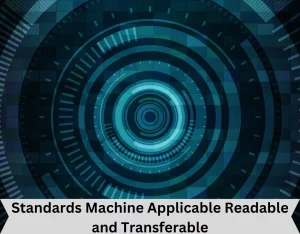ForumIAS announcing GS Foundation Program for UPSC CSE 2025-26 from 27th May. Click Here for more information.
Source:-This post on Standards Machine Applicable Readable and Transferable (SMART) has been created based on the article “Two day workshop on ‘Digital Transformation’ concludes at Yashobhoomi” published in “PIB” on 23 January 2024.
Why in The News?
Standards Machine Applicable Readable and Transferable, Recently The Bureau of Indian Standards in association with the International Electrotechnical Commission (IEC) and the International Organization for Standardization (ISO) conducted two days IEC/ISO Workshop on Digital Transformation at Yashobhoomi Convention Centre, Dwarka.
About Standards Machine Applicable Readable and Transferable (SMART) approach
1) Standards Machine Applicable Readable and Transferable (SMART) is the joint programme of ISO and IEC to drive the digital evolution of international standards.
2) SMART standards will allow machines to exchange data and undergo processes outlined in the standards.
3) They ensure greater precision in operations, providing more time to users for innovation-led work.
What are The Issues with Current Standards?
1) Experts and industry stakeholders are unable to participate because of voluminous, highly technical and not easy to read standards.
2) Micro and Small sectors, which form over 80% of the BIS licences, find it difficult to understand the standards due to their technical complexity.
Key Benefits of SMART Approach
1) Manufacturers can integrate SMART standards into their entire product and service lifecycles, reducing costs and ensuring compliance with the latest regulation.
2) The content is tailored to users specific needs, ensuring that they receive relevant information with ease.
3) This will automate the process, thus allows them to focus on content creation in a more effective manner.
Want To Read More Topics-
About Bureau of Indian Standards (BIS):
Established– under the BIS Act 2016
Objective– To ensure harmonious development of the activities of standardization, marking and quality certification of goods.
Concerned ministry-Ministry of Consumer Affairs, Food & Public Distribution.
Headquarters- New Delhi, and its 5 regional Offices (ROs) are at Kolkata (Eastern), Chennai (Southern), Mumbai (Western), Chandigarh (Northern) and Delhi (Central).
Recent initiatives- It is creating awareness about standards at the grassroots level and conducting training program for village panchayats.
About International Organization for Standardization (ISO):
1) It is an independent, non-governmental international organization.
2) It has membership of 170 national standards bodies.
3) The body brings together experts to share knowledge and develop voluntary, consensus-based, market-relevant International Standards to support innovation.
International Electrotechnical Commission (IEC):
Founded– In 1906
It is a global, not-for-profit membership organization with more than 170 countries and provides a global, neutral and independent standardization platform for experts globally.
UPSC SYLLABUS-SCHEME AND PROGRAMMES OF THE GOVERNMENT IN THE NEWS.





